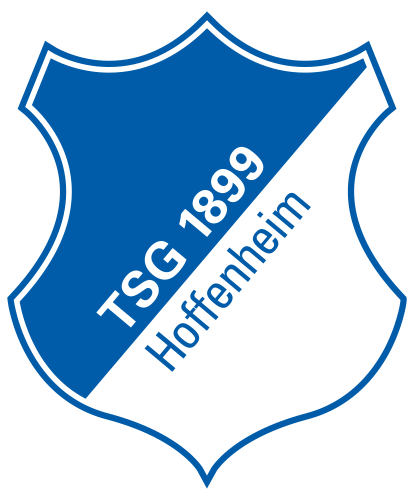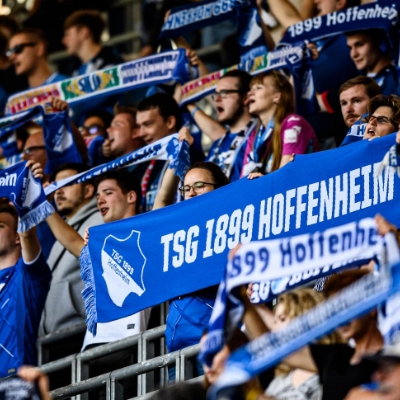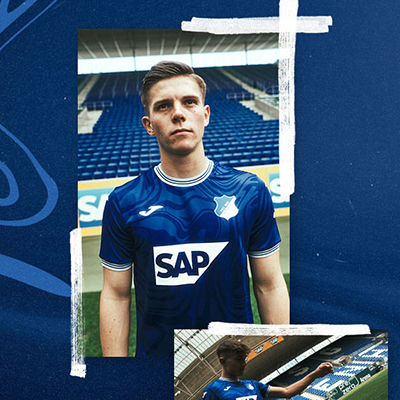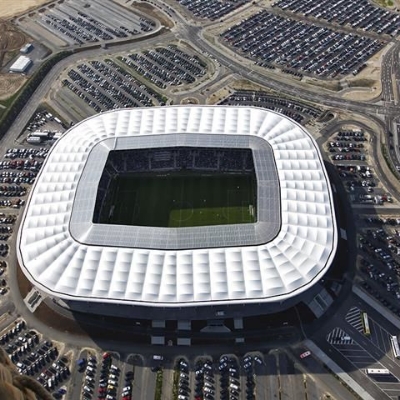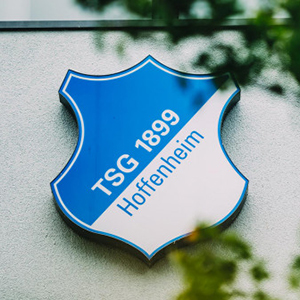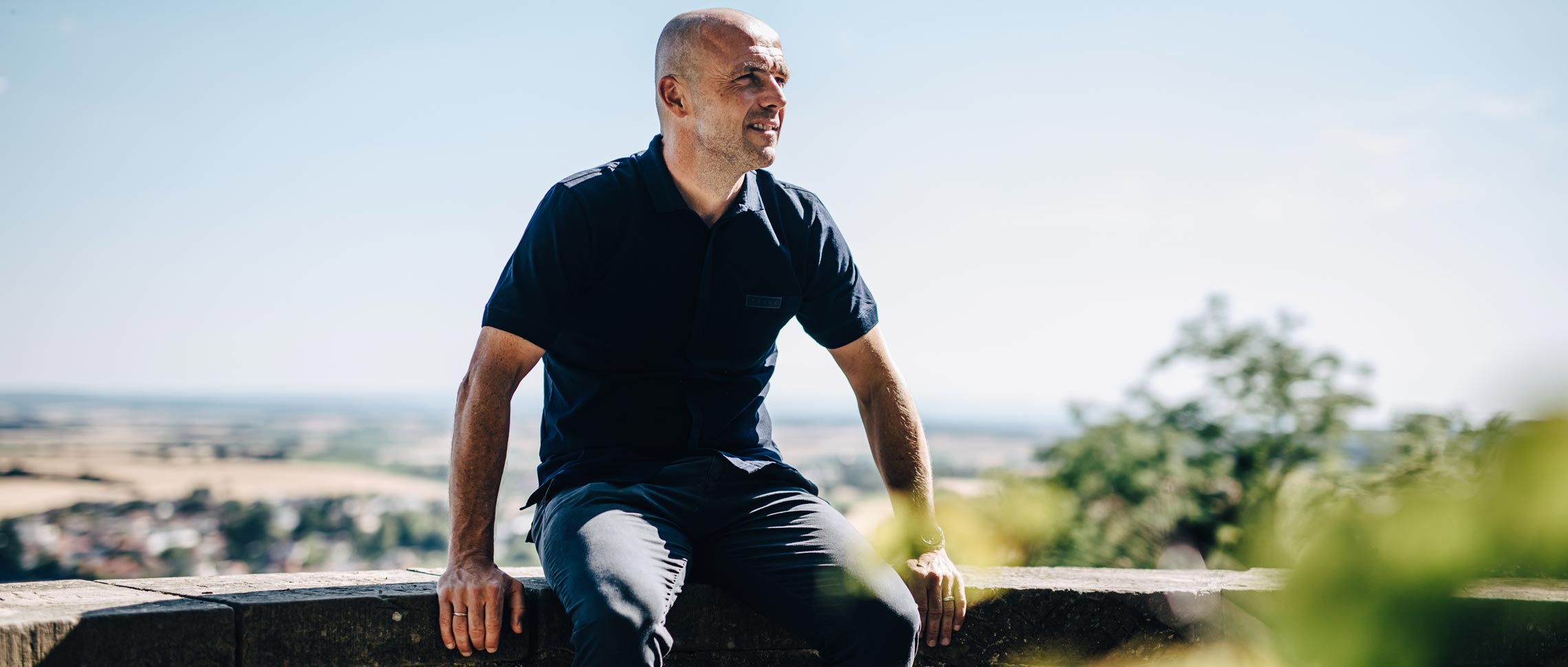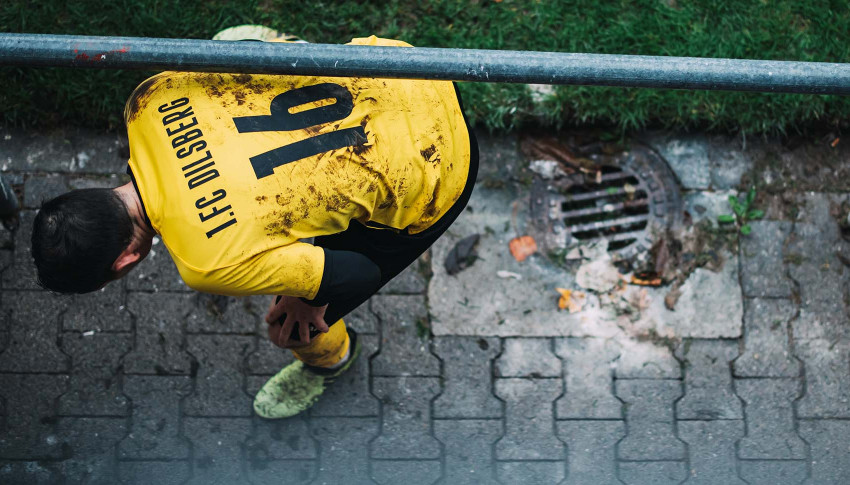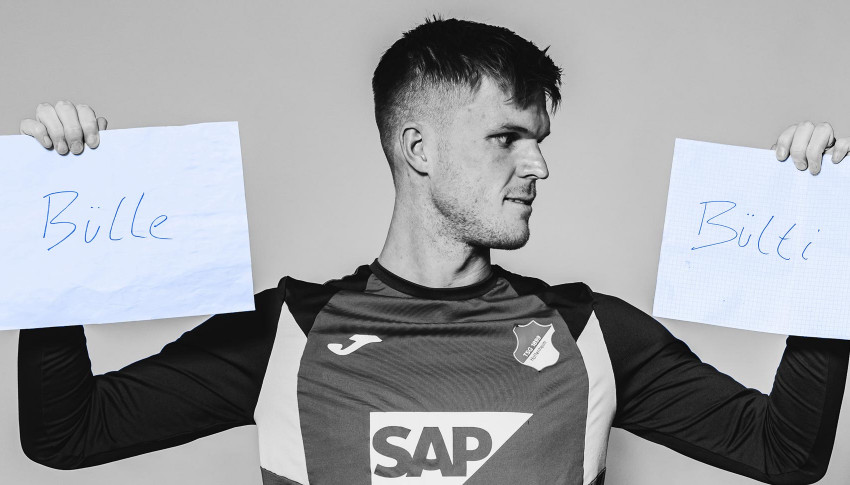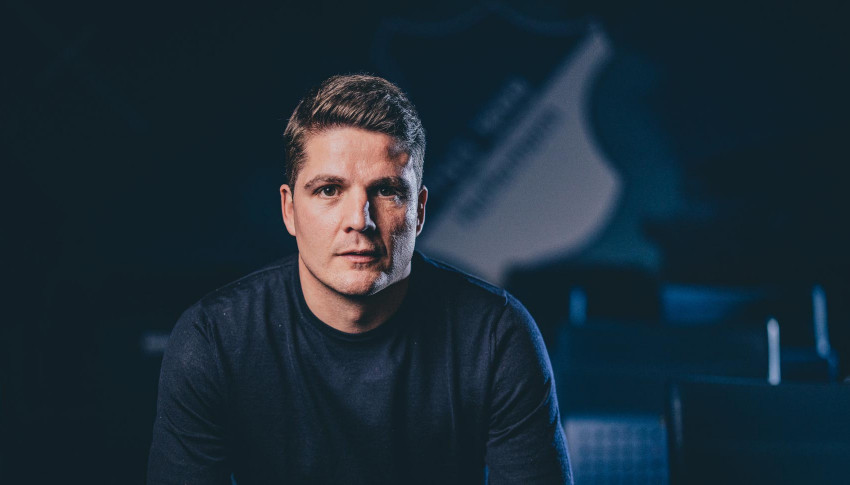Schreuder: "There's no need to talk ourselves down"
A very warm welcome back, Alfred. You've been here just a few weeks but it's already as if you never left.
"Thank you, I feel very comfortable here. I very quickly develop a very close connection to things that I like. I love this emotional closeness. I have nothing but positive memories of my first stint here, of all our joint successes as a coaching team. And I never lost touch, with Julian, Michi (editor's note: goalkeeping coach Michael Rechner) or Alex (Rosen). At Ajax we mostly played on Sundays – and so I would watch TSG on television on Saturdays."
For those on the outside, it was difficult to ascertain how much of a hand you had in the team's success.
"I think the whole team did well. You can't measure which person contributed which percentage. That's not what it's about either. What counts is how you work together. That's what I always say to the players as well. A quick winger can only be effective if there is another player behind him to reliably shore up the defence. It's about having the right pairing. Arjen Robben, for example, had a strong full-back behind him in Philipp Lahm during his best years at Bayern Munich. And that's how it works in a coaching team, too: cooperation and mutual trust are essential.
Huub Stevens, with whom you came to TSG, and Julian Nagelsmann, alongside whom you worked later on, are almost opposite personalities.
"That's how I saw it as an assistant coach too. Unlike Huub, Julian did a lot on the pitch at the beginning. That leaves you more in the background, analysing a lot, observing and giving feedback. That worked superbly between the two of us. I think I was able to help him with my experience from many years as a player and a coach."
"You have to be open and honest"
And were you the strict one out of the two of you? The one who ultimately informed the players if they weren't in the squad or the starting XI.
"I never minded that. That's our job. Of course, it's always difficult on a personal level to inform someone of a negative decision and say: 'You're not in the squad' or 'You're not playing now but we need you'. But we're all trying to work together to achieve the best for the club. Players need to understand it's not a decision against them personally but one in the interests of the team. One must always be clear, open and honest, then things will work out."
But at the same time, you're also the type of head coach who will set out the cones or carry a goal.
"Yes, for me that's important because I believe that this work on the pitch is one of my qualities. Why should I not carry a goal just because I'm a head coach? We're a team. There must be a natural authority. The players need to believe me, to trust me – and then what does it matter if I carry a goal or not?"
"My brother Dick is important to me"
Speaking of coaches, TSG have brought in your brother Jan-Dirk ("Dick") as the assistant coach...
"Dick is important to me. He is, if you like, the eyes in the back of my head. He himself spent a long time working as a head coach (editor's note: at FC Katwijk in the Dutch third tier) but above all he's a complete confidant. I'm 100 percent sure that he'd tell me: 'Alfred, you need to do that differently.' For him, I'm not a head coach; I'm a brother. I can discuss things openly with him and I can expect him to do the same with me as well."
Well, he does know you particularly well.
"We're very close, perhaps like the Kovac brothers or Ronald and Erwin Koeman, who have also worked together in the dugout. We shared everything from a very young age. He's only one year older than me. We grew up together, spent the whole day playing football together outside. We had a lot of fun – and there was always, always disagreement and drama too." (laughs)
The talent was inherited, but the discipline was instilled in you.
"Yes, absolutely. Our father was a professional for two years at FC Wageningen. We lived on a farm, which meant we always had a lot of space to run around and play. At the same time, we had up to (Schreuder briefly thinks and seems to be counting) 27 cows and we always had to work in the stables. But that was completely normal and the way things were. If you were free, you would first go to milk the cows – and after that you could have a kickabout."
You even left home for the first time together with Dick.
"That's true. He was 15 years old and I was 14 when we both attended the football boarding school run by PSV Eindhoven. We spent three years there, approximately one hour by car from my hometown of Barneveld. For me, it was especially important during this period to have Dick there. I was feeling homesick enough as it was."
So which of you was better?
"Dick was quick and a strong dribbler, a real talent. Then, at 16 or 17, he injured his patella tendon. That definitely set him back, but he still managed to amass almost 100 appearances in the Eredivisie (the Dutch top flight)."
And what about you?
"I made more than 300 (editor's note: 333 to be precise) in the Eredivisie, but being a defensive midfielder I was able to play until I was 36."
"We have very close ties to home"
You moved about often during your career, later working as a coach for some time in Enschede, at TSG and in Amsterdam. But your family has always remained in Barneveld, your place of birth.
"Yes, I've always commuted a lot. We have very close ties to home. But now my family has joined me. That was very important for me. Otherwise I wouldn't have done it. My wife really wanted to join me."
And the kids?
"Our eldest daughter is 18, she has stayed at home in the Netherlands. The youngest one is 15 and our son is 12 – they've both come with us and will attend a European school here. Then they too can take the decision to go to the Netherlands for their final exams."
The relocation of your entire family was important to you.
"Absolutely. As a head coach, it's no longer possible to go to the Netherlands to visit your family so often. If my family hadn't wanted to come, I wouldn't be here. But my wife thinks it's very beautiful here. I had the same impression in my first stint. In terms of scenery, it's wonderful. Plus there's Heidelberg, which is lovely. For our kids, the thought of moving to another country was obviously a little daunting to begin with. But they also feel positive now. They're going to start school here in September and they will spend the first three months mainly learning German."
What about you? Did you learn German at school?
"No, here. When I came to TSG the first time, I couldn't speak it at all. I could understand everything very well, but I couldn't say a word myself. In the first two weeks, I did everything in English. But then Huub Stevens said to me: 'Do everything on the pitch in German.' Within six months, my German had already gotten much better. I had a lot of contact with the coaching staff and I always spoke German with them. And once it became clear I would be returning to TSG as head coach, I knew that I would need to speak a lot of German again. I can't say that I did a language course at that point, but I did spend a lot of time on the phone." (laughs)
"A new sense of confidence has emerged"
And the press conference where you were unveiled was obviously done in German. Among other things, you said that TSG needed to be courageous.
"Courageous and confident. Not arrogant, but there's no need to talk ourselves down either. TSG is a small club only in the sense that the village of Hoffenheim is small. A new sense of confidence has emerged, prompted, no doubt, by two years of competing in Europe."
What did you know about Hoffenheim beforehand?
"I obviously knew Edson Braafheid and Ryan Babel, it was through them that the story of Hoffenheim became known in the Netherlands. Anyone who knows their football also knows who Dietmar Hopp is and how he's developed the club, in part thanks to an excellent youth set-up. TSG have now spent 11 years in the Bundesliga and written their own history. The club has worked its own way up and carved out its own identity."
The 4-3-3 system is part of the Dutch footballing identity and the Ajax School in particular. TSG have tended to play with a back three in the last few years. What's your plan?
"At Ajax, we operated flexibly in that respect. On the team sheet it was a 4-3-3 but that's not how it was on the pitch; there was often a back three when attacking. We always have to see what's best for the lads, which players fit the system. But at the end of the day, it's also vital that we have our best players out on the pitch at any given time."
When it comes to attacking players, you're spoilt for choice with the likes of Kramaric, Belfodil, Bebou, Szalai, Skov and Adamyan.
"Exactly. Playing with two traditional strikers is not enough. In addition to a 3-4-3, we will also look to play a 4-4-2 with a diamond and a nominal striker in the No. 10 position. We want to be proactive with the ball regardless of which formation we're playing in. We want to dominate matches. We have enormous quality going forward."
"It's always about us, never just me"
At the same time, you need to ensure defensive stability.
"The 52 goals that were conceded last term is far too many. But there were many reasons for that, some of them to do with personnel. For example, a Benjamin Hübner, who was out for a long time, is extremely important for the group. He's a real fighter. His team-mates can sense that and they feel better when he's there – and they also play better when he's there. He gives the team confidence. When the team stand in the tunnel before the game, then key players like Benni need to be at the front so the opposition can see: 'Oh, it's gonna be tough against them.' Only Ronaldo can stand at the back." (laughs)
The players have lauded the new discipline. Was some of that missing at the end of last season?
"If we want to win, then the only thing that matters is we remain disciplined. If you don't have that you might as well forget it. If either the coaching staff or the players become negligent then there's no chance you'll have success. That's why it's so important to keep a clear head. It's always about 'us', never just 'me'. If the players see that the coach takes his duties seriously and sets a good example, that transmits to them."
For example?
"As a coach, you have to be a good observer. I had a long playing career. I know that players can tell whether or not I see when they do something wrong, and it's important that I let them know. It's not about being tough; it's just being honest. It's always about the basics, both on the pitch and off it."
"We need to be ambitious"
Do you get the feeling the lads are putting it into practise well?
"Absolutely. I told the lads at our very first meeting that I was impressed and proud of how unbelievably ambitious they were. I tried to project this desire onto Ajax – with success. And this willingness is something that we want to show again here and now. We need to be ambitious."
What are TSG capable of achieving this season?
"We need to keep our feet on the ground while showcasing our identity and our way of playing. We will go forward with courage – and will attack quickly whenever possible. The only thing I can say right now about our objective is: we want to play the kind of football the fans love. I don't have any fear. I trust the club and my players – as well as myself and my own abilities."



